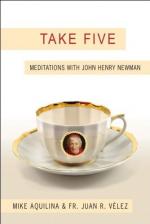|
This section contains 2,199 words (approx. 8 pages at 300 words per page) |

|
Dictionary of Literary Biography on John Henry Newman
Newman's continuing influence depends primarily upon his spiritual autobiography and his ideal of a Christian humanist education. In his own day, he was famous for his hymn "Lead, Kindly Light" (1833) and his poem The Dream of Gerontius (1866); for his preaching and theological writing; above all for his leading role in the Oxford Movement and subsequent Catholic revival. His two novels, Loss and Gain (1848) and Callista (1856), have been read because of their author's attainments in other fields. As Edward Wagenknecht says, Newman can be fairly judged only from his spiritual autobiography, Apologia pro Vita Sua (1864), written as a counterblast to an attack by Charles Kingsley, the Anglican "Broad Church" clergyman and bitterly anti-Catholic novelist and historian.
The eldest child of a London banker, John Henry Newman spent his early years mainly in a house at Ham, Richmond, that in old age he dreamed of as "paradise." Educated at Ealing...
|
This section contains 2,199 words (approx. 8 pages at 300 words per page) |

|


